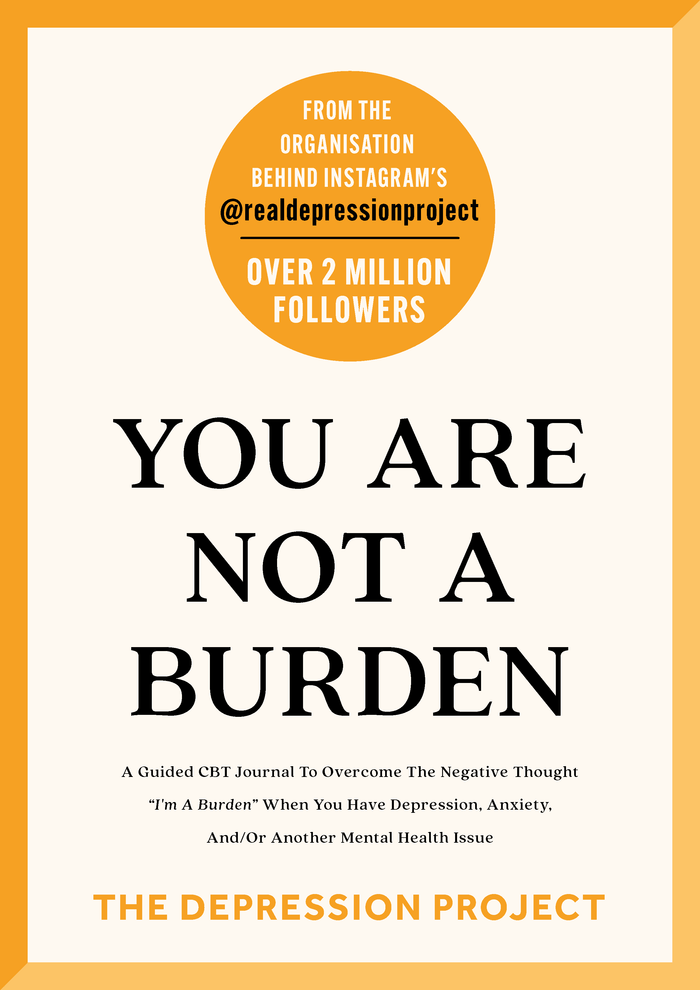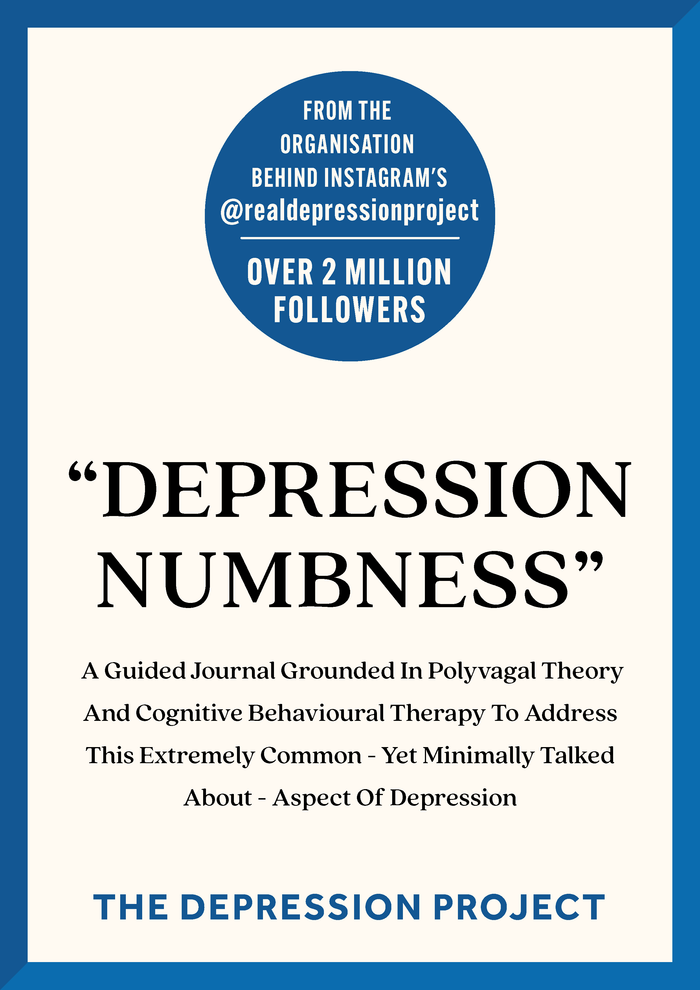Unfortunately, as we hear from members of The Depression Project's community every single day, depression can affect practically every aspect of a person's life. And, unsurprisingly, one aspect in particular that depression can impact is a person's friendships.
On that note, in this blog post, we're going to talk about what depression looks like in a friendship - as commonly told to us by our community members.
What Depression Looks Like In A Friendship, Part 1: Thinking That You're A "Burden"
Sadly, "I'm a burden" is an extremely common negative thought for people with depression to experience, particularly when:
- They think that they’re dragging their friends down with their depression and putting a damper on their lives;
- They think that their friends would prefer- and be better off doing other things rather than supporting them.
And, as a result of thinking that they're a "burden" to their friends and/or fearing that they will be, it's common for people with depression to:
- Hide their depression and keep it to themselves by pretending they're "fine";
- Socially withdraw from their friends - including, for example, not meeting up with them as much as they otherwise would (or perhaps not even at all), not answering the phone when their friends call them, and/or not responding to messages.
NOTE: If you can relate to feeling like a "burden" in your friendships, then we think you'll find our cognitive behavioural therapy-based journal You Are Not A Burden really, really helpful.
What Depression Looks Like In A Friendship, Part 2: Thinking That You're Not Worthy Of Your Friends' Kindness And Therefore Rejecting It
Because depression is often associated with feelings of worthlessness and negative thoughts such as "I'm not good enough" and/or "I'm unlovable", it's common for people with depression to feel as if they’re not worthy of the love and kindness that their friends offer them. And, if this is the case, then they're likely to reject that love and kindness - including offers from their friends to support them through their depression.
What Depression Looks Like In A Friendship, Part 3: Feeling Lonely Even When You’re Surrounded By Your Friends, Because What They See Is So Different To What You Feel
For a variety of different reasons, it's extremely common for people to hide their depression from their friends - such as because, for example:
- Like we've mentioned, they're scared of burdening their friends with their depression;
- They feel unworthy of support and their friends' love and kindness like we've also mentioned;
- They're ashamed of their depression and the struggle they're going through;
- They don’t feel as if they have a “safe space” to talk about their depression;
- They're worried that they'll be judged, criticised and/or misunderstood (particularly if, like many people with depression, they've been judged, criticised and/or misunderstood in the past when they've opened up about their depression);
- Their depression doesn’t align with their friends' perception of them (for example, in the case of their friends perceiving them to be the "funny friend", the "strong friend who's always helping others", or the "successful friend who's got their life all-together");
- They don't know how to explain and open up about their depression to their friends.
And, when people choose to hide their depression from their friends, it inherently creates a big disconnect between "what their friends see" and "what's actually happening" - which, even when they're surrounded by their friends, can result in people with depression feeling extremely isolated and alone.
What Depression Looks Like In A Friendship, Part 4: Struggling To Connect With Your Friends Because You're Apathetic About The Things You Once Cared About
Like we often talk about at The Depression Project, for a variety of reasons, it's extremely common for people with depression to feel "numb" - such as because:
- "Depression numbness" can be a way of protecting oneself from pain that is perceived to be unavoidable1;
- Numbness can be a side effect of anti-depressant medication2;
- Substance abuse - which is common for people with depression to engage in - can also contribute to feelings of numbness3.
And, if they are feeling numb, then it can cause people with depression to be apathetic about, for example, their hobbies, interests, and other points of connection with their friends - which can consequently make it difficult for them to engage with those friends.
NOTE: If you struggle with "depression numbness" and would like to learn a wide variety of evidence-based strategies to break out of "depression numbness" so that, among other things, you can get back to enjoying the things that you customarily like doing and also better connect with your friends as well, then we think you'll find our "Depression Numbness" Journal extremely helpful.
What Depression Looks Like In A Friendship, Part 5: Socially Withdrawing And Isolating Yourself
Like we at The Depression Project hear from members of our community every single day, it's extremely, extremely common for people with depression to socially withdraw and isolate themselves from their friends4. We've already mentioned a few reasons why this often takes place, but some additional reasons include because, for example:
- People with depression need time to themselves to process all of the complex emotions that are commonly associated with depression;
- They're in "survival mode", and are therefore having to use all of their capacity just to get by;
- Given all of depression's debilitating symptoms they're fighting, they need time to rest and recharge their batteries;
- They're feeling extremely "depression tired";
- They don't want their friends to see them at their worst;
- They need to be in their "safe space";
- They may find themselves frequently crying as a result of their depression;
- Leaving their home may feel too overwhelming for them;
- They may not be able to get pleasure out of anything - including spending time with their friends;
- Their depressive symptoms may be so intense that they've been neglecting their personal hygiene;
- Their depressive symptoms may be so intense that they don't have the capacity to fake a smile and pretend that everything is fine.
For a more detailed list of reasons why people with depression often isolate themselves, please read this blog post: 20 Reasons Why People With Depression Isolate Themselves.
We hope you've found this blog post about what depression looks like in a friendship informative ❤️
All our love,
The Depression Project Team.



